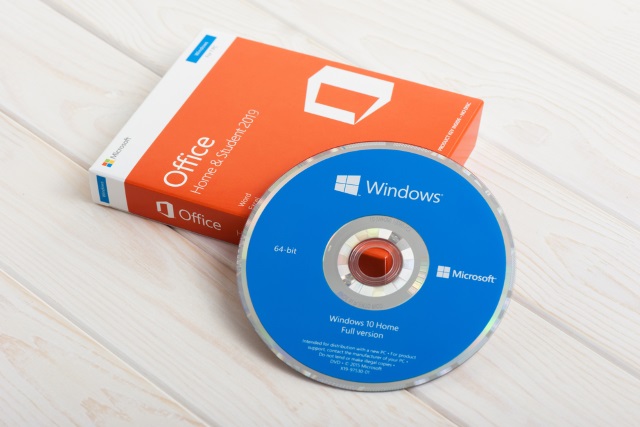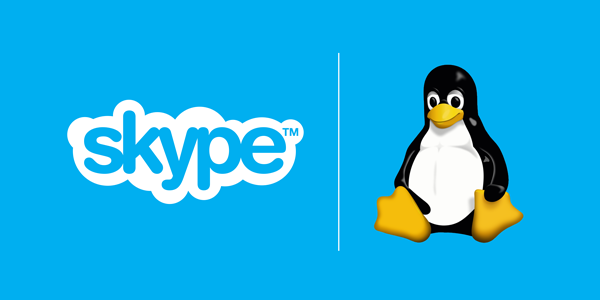
Forget Super Bowl LII -- stream the Kitten Bowl and Puppy Bowl with Roku
Super Bowl Weekend is officially here, and I am beyond excited. As a big New York Jets fan, I don't care much for the Eagles or Patriots, but I will root for the former as I strongly dislike the latter. Football aside, I also enjoy the commercials, the halftime show, and of course, eating buffalo chicken wings.
As an animal lover, I also love watching some other programming on Super Bowl Sunday -- the Puppy Bowl, and to a lesser extent, the Kitten Bowl. If you aren't familiar, these pet-themed Bowl games are essentially just cute animals playing on miniaturized football fields. These whimsical games are fun to watch, but more importantly, they usually raise awareness about pet adoption and similar causes. If you have a Roku device, I am happy to say you can use it to stream both the Puppy and Kitten Bowl.

Despite reports to the contrary, India is not banning Bitcoin and other cryptocurrencies
A budget speech given by India's finance minister led to numerous reports that India was banning the use of cryptocurrencies such as Bitcoin and Ethereum within the country. While Arun Jaitley noted in a speech that the Indian government does not recognize cryptocurrencies as legal tender, his slightly ambiguous language resulted in something of a misunderstanding.
Now the Blockchain and Cryptocurrency Committee of the Internet and Mobile Association of India (IAMAI) has spoken out in an attempt to clarify the issue, and allay fears that Bitcoin et al are on the verge of being banned.

Microsoft's Core m3 Surface Laptop costs just $799
Microsoft has unveiled a cheap on-ramp for people looking to get involved in its Surface range. There's now a version of the Surface Laptop available for just $799 -- you might even be able to get it for less.
Of course, this low price tag means cutting a few corners, but the specs are still the same as the entry-level Surface Pro -- more than enough for everyday tasks. So what does a buck short of $800 buy you? Well, provided the idea of an Intel Core m3 doesn't put you off, you might not be disappointed.

BurnAware 11 Free unveils ISO unpacker tool, HD audio support
Burnaware Technologies has released BurnAware 11.0 Free, BurnAware 11.0 Premium and BurnAware 11.0 Professional, the latest builds of its free and paid-for disc burning products for Windows.
Version 11’s new headline feature is the addition of a tool to view and extract files from ISO images. It’s accompanied by an option to associate ISO files with BurnAware as well as support for incorporating HD audio tracks into compact disc compilations.

Do you still partition your drive? Paragon Partition Manager 16 Free makes partitioning a breeze
It’s a valid question. In 2018, how many people buy a brand new drive and then partition it, splitting the drive into smaller chunks?
There’s a reason why this is beneficial. You could store your photos on a single partition and then simply backup the entire partition. Assigning a drive letter to each partition can improve productivity. If you know all your work is on your "V:" drive, then it simply makes it easier to locate the drive and find your files.

Bitcoin falls under $8,000 -- crypto market down to $360bn
Towards the end of last year, it wasn't unusual for the major players in the cryptocurrency market to rise by double digits on a daily basis. They were reaching absurd levels, which were incredibly hard to justify even by crypto standards. Even though I like the market and understand the merits of some technologies, I dare anyone to explain with a straight face how Dogecoin -- which hasn't been updated in years -- and its ilk skyrocketed in valuation.
The market has seen some massive pullback in 2017, right after it peaked at over $830 billion. This should not surprise anyone who's keeping an eye on the crypto scene, but it does give the so-called "traditional media," which seems clueless when it comes to reporting about this industry, reason to talk about these things like it's the end of the world. Every. Single. Day.

Fewer than a fifth of enterprises have a notification plan in place for data breaches
With the EU's GDPR legislation coming into force in a few months, and new and potentially tougher legislation on data breaches planned in the US, a new study reveals that many enterprises are under prepared.
The report from integrity assurance company Tripwire shows that less than a fifth (18 percent) say that they are fully prepared with a process in place to notify consumers in the event of a data breach. The majority (73 percent) say they are 'somewhat prepared' and would have to figure things out 'on the fly.'

Microsoft extends Windows 10 support and makes Office 2019 a Windows 10 exclusive
If you're thinking about upgrading to Office 2019 when it is released in the second half of 2018, you'll have to make sure that you have upgraded to Windows 10 first. Microsoft has revealed that Office 2019 will only run on Windows 10 (and the next LTSC release of Windows Server), dropping support for Windows 8.x and earlier.
In the same announcement, Microsoft also revealed that it is extending the support period for Windows 10, following the news that the operating system has finally overtaken Windows 7.

Is it time to consider Emsisoft Anti-Malware 2018?
There’s so much negative press about 'mature' security software from the likes of Kaspersky, maybe it’s time to consider an alternative? And it’s not limited to Kaspersky. Brands such as Norton have been questioned recently by allowing Russian authorities to examine source code for potential backdoors.
In our experience, people avoid change and often only seek an alternative when their system (somewhat ironically) is compromised. Little do people know that they are actually fewer daily threats than they realize, unless you spend the day downloading dodgy software or looking at rogue websites, your everyday computing experience will be trouble-free.

Google brings YouTube TV to Roku and Apple TV
The world is currently undergoing a cord cutting revolution. Thanks to the internet, many consumers are being empowered to dump their cable provider and switch to a streaming option. This is sort of ironic, as quite often, the internet being used to stream is provided by the TV provider that is being dumped. Ultimately, the cable company becomes nothing more than an ISP. You know what? Maybe that is how it should be.
Cordcutters have many internet-based TV providers from which to choose these days, but one of the most attractive is offered by Google. The search giant’s YouTube TV service is quite intriguing thanks to its paltry $35 monthly fee (often much less than cable TV). Starting today, the service will become even more popular, as it is now available for Roku and Apple TV.

Microsoft releases Skype as a Snap for Linux
While Microsoft has long been viewed as an enemy of the Linux community -- and it still is by some -- the company has actually transformed into an open source champion. Not only does Microsoft release software for Linux, such as PowerShell Core 6.0, but it is even serving distros in its software store for Windows. Let's not forget that Microsoft even offers Linux virtual machines in Azure.
One of Microsoft's biggest Linux contributions, however, is Skype -- the wildly popular communication software. By offering that program to desktop Linux users, Microsoft enables them to easily communicate with friends and family that aren't on Linux, thanks to its cross-platform support. Today, Microsoft further embraces Linux by releasing Skype as a Snap. This comes after two other very popular apps became available in Snap form -- Spotify and Slack. Wait a minute -- Slack, Spotify, and now Skype? It's a mighty strange coincidence that popular apps that start with "S" are being made available as Snaps -- yet another "S" word!

Cyber criminals in 'gold rush' to exploit cryptocurrencies
A new report from risk management and threat intelligence company Digital Shadows shows that cyber criminals are looking to exploit the boom in interest and adoption of cryptocurrencies.
The study highlights the most common methods used by these criminal actors, which include crypto jacking, account takeovers, mining fraud and scams against initial coin offerings (ICOs).

Bitcoin dips below $10,000 -- it's a bloodbath
After peaking at just over $20,000, Bitcoin entered a massive correction last year which took it dangerously close to the $10,000 mark. The most-valuable cryptocurrency looked like it could recover for a while, but today it is still far, far away from the record price of last year.
The correction is moving Bitcoin back into sub-$10,000 territory today, and it is taking the market down along with it. Some of the majors are still holding well, but the top 100 is in the red almost in its entirety.

Nintendo is bringing Mario Kart to smartphones
Following the success of Super Mario Run, Nintendo has confirmed plans to bring Mario Kart to mobile devices.
The game will be called Mario Kart Tour, and it is currently scheduled for release by the first quarter of 2019. This is the first Mario Kart title to make its way to smartphones, and a title that will be eagerly awaited by fans of the Italian ex-plumber.

NetMarketShare: Windows 10 still some way behind Windows 7
If you believe StatCounter’s numbers, Windows 10 finally overtook Windows 7 in January. However, if you tend to trust NetMarketShare’s monthly desktop operating system figures more, well, then it didn’t.
According to the analyst firm’s numbers, in January Windows 10 narrowed the gap by a fair margin, but Windows 7 is still some way in the lead.
